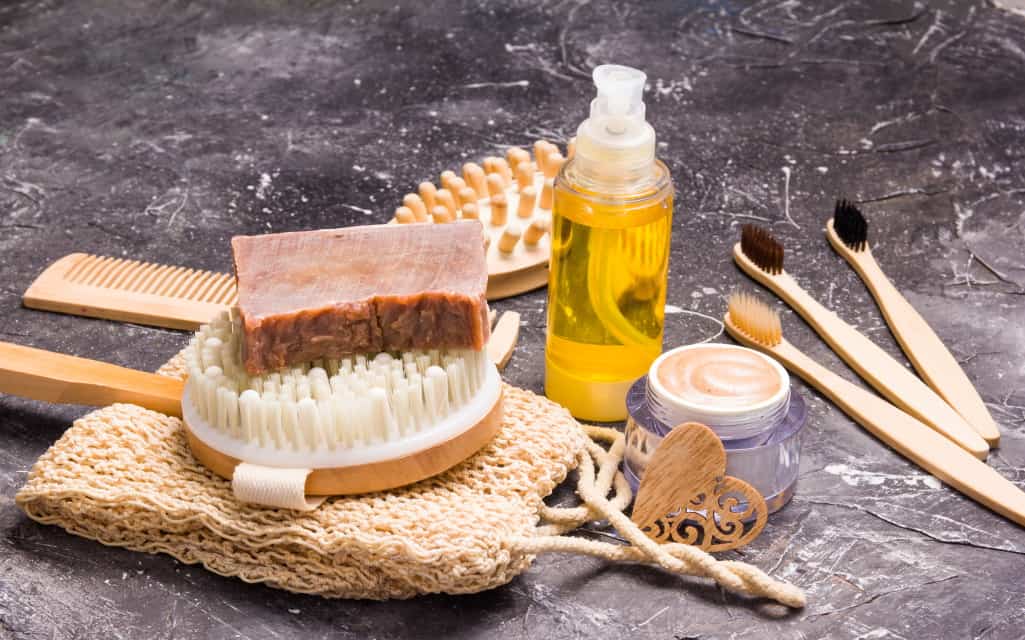Homemade body products can offer many benefits especially for those who have the time and inclination to create their own cosmetics. However, people who make beauty products at home need to be aware that formulating weird and wonderful recipes may not resemble professional natural body products bought in stores. There can be effects on the skin that were never previously considered.
What do they call natural body products?
There are a lot of chemicals added to skincare products that are harmful. Pesticides, toxins, endocrine disruptors, surfactants, and various carcinogens were used in products before many of them were banned. Consumers are more aware than ever of the importance of using healthy, natural ingredients in skincare products.
Manufacturers are also aware of how consumers’ behaviors and attitudes are changing towards the authenticity of store-bought products. This has created a surge in the use of labels such as ‘natural’ or ‘organic’ being used on products. But consumers need to be aware that simply applying these labels does not certify the product as safe and legally, it means nothing.
Any manufacturer can use any term to imply a product contains natural ingredients. It could contain one natural element yet saturated with other harmful chemicals. There are no regulations as to what the label ‘natural’ should include. However, there are qualifiers that consumers can use to determine how natural a product really is, such as:
- Free of preservatives, irritants, or toxic chemicals
- GMO-free
- Cruelty-free
- Eco-friendly
- Carefully formulated with all-natural, organic ingredients
Why are they so popular?
The “natural” beauty product industry is expanding because consumers are fearful of chemicals and toxins used in everyday products. Many questionable science methods and theories have been exposed, increasing the skepticism toward conventional skincare products.
It has caused radical upheaval pushing consumers to find products that contain naturally derived ingredients. The concerns are legitimate and there have been high-profile lawsuits against manufacturers using unsafe components that caused adverse health effects.
Natural body products are also safer for personal use, better for the environment, they aren’t tested on animals and they contain beneficial nutrients for the skin.
Where can you get natural body products?
Authentic natural body products can be bought from stores and manufacturers that specialize in developing natural and organic products. Alternatively, you can try your own DIY natural body products at home. Unfortunately, it’s not as easy as it sounds.
The skin needs a healthy barrier to protect it from external elements and creating your own products doesn’t guarantee the natural ingredients you use will be properly absorbed and therefore are less effective. In professionally formulated natural skin care products, safe components are added that act as a vehicle to ensure absorption. Let’s have a look at the pros and cons of homemade body products.
Pros
- Organic Ingredients: You can select your own natural, organic ingredients that are chemical-free and gentle on the skin.
- Formula Control: Besides using natural ingredients, you get to control the formula and adjust the quantities as needed.
- Fresh Cosmetics: With homemade products, you get to use freshly made mixtures that contain antioxidants from various fruits or oils knowing there are no added preservatives.
- Cost-effectiveness: Quality store-bought products are expensive, so making your own can save in cost as well as being able to buy ingredients in bulk.
Cons
- Preparation Time: What you save on money, you’ll spend in time. There is a lot of effort involved in planning the formula, finding the right ingredients, and preparing the mixture. And every time you need to replenish your stock, you’ll have to go through the process all over again.
- Limited Effects: Manufacturers spend millions in research and development to come up with effective, safe products using scientific formulas. So, whipping up a homemade batch of face cream is not going to be as effective or have long-term results.
- Finding Ingredients: Although most ingredients can be found in the kitchen or grocery store, there may be others such as specific essential oils or plants that are hard to locate or expensive to buy.
- Sterilization and Expiration: Some ingredients can be a breeding ground for mold and bacteria. Using the right sterilization and storage techniques is important to keep your homemade mixtures sanitary. Additionally, some ingredients have an expiration date, so when combined in a homemade product, you need to label products correctly with dates to ensure they are safe to use.
- Non-scientific Knowledge: Homemade products aren’t tested against allergies and adverse effects. When creating a combination of ingredients, you could put yourself at risk for harmful reactions, skin sensitivities, rashes, and flare-ups.
Conclusion
When it comes to your skin, it is vital to use safe, healthy, and natural handmade bath and body products. Making your own can be a fun hobby but it can also put you at risk for infection and allergies. There are several tips you can use to help you make informed choices about the products you buy.
- Use watchdog group websites and apps that list harmful ingredients found in body products.
- Visit ‘Green’ beauty stores and health food shops like PureRaw Shop and try their product samples.
- Research shops and products online and use resources to discover the best of breed range of natural products.
Be an informed consumer by tapping into the wealth of information available online as well as using the qualifiers mentioned above to help you identify the healthiest products for your skin.



